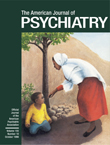Dr. Schuckit Replies
To the Editor: Thank you for giving me the opportunity of responding to the thoughtful note by Sheila B. Blume, M.D., commenting on our recent article comparing induced and independent major depressive disorders in almost 3,000 personally interviewed alcohol dependent men and women. I agree with her major point that, similar to their proportion in the general population, independent depressive disorders are at least twice as common among alcohol-dependent women as among alcohol-dependent men. While I am not certain that I am comfortable with the figures that she cites (they don"t seem to be part of table 3), table 1 demonstrates that the rate of independent depressive disorders for alcoholic women is almost 25%, while the rate for such independent major depressions in men is 11%.
Therefore, Dr. Blume"s comments underscore the importance of recognizing that more female than male alcoholics are likely to suffer from an independent major depression. Women are, thus, more likely to have mood disorders that do not clear with continued abstinence, perhaps requiring antidepressant medications. We had attempted to emphasize this in table 5, where we demonstrated the twofold odds ratio increase in women compared to men for independent depressions, but did not comment upon this finding or interpretation extensively in the discussion. Thus, we are grateful to Dr. Blume for emphasizing this important clinical point.
At the same time, we must warn clinicians that a substantial proportion of individuals with alcohol dependence (be they male or female) who present with depressive syndromes do not have independent major depressive disorders. Our data are consistent with the need to carefully evaluate the past history, searching for the substance-induced versus independent nature of prior and current depressive episodes, and to emphasize the benefits of observing patients for a month or so before initiating antidepressant treatment.



